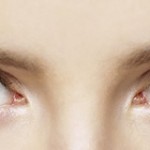What is Vitamin D and what does it do?

Vitamin D is a nutrient found in some foods that is needed for health and to maintain strong bones. It helps the body to absorb calcium (one of bone’s main building blocks) from food and supplements. People who get too little Vitamin D may develop soft, thin and brittle bones, a condition known as rickets in children and osteomalacia in adults.
Vitamin D is important for our body in many ways. For example, muscles need it to move, nerves need it to carry messages between the brain and every part of the body, and the immune system needs Vitamin D to fight off invading bacteria and viruses. Together with calcium, Vitamin D also helps protect older adults from osteoporosis. Vitamin D is found in cells throughout the body.
What foods provide Vitamin D?
Very few foods naturally have Vitamin D. Fatty fish such as salmon, tuna, and mackerel are among the best sources. Beef liver, cheese and egg yolks provide small amounts. Mushrooms provide some Vitamin D. In some mushrooms, the Vitamin D content is boosted by exposing these mushrooms to ultraviolet light.
Can I get Vitamin D from the sun?
The body makes Vitamin D when skin is directly exposed to the sun. Skin exposed to sunshine indoors through a window will not produce Vitamin D.
What kinds of Vitamin D dietary supplements are available?
Vitamin D is found in supplements (and fortified foods) in two different forms: D2 (ergocalciferol) and D3 (choleacalciferol). Both increase Vitamin D in the blood, but the D3 form may do it better and keep levels raised for a longer time.
Certain other groups may not get enough Vitamin D:
- Breastfed infants, since human milk is a poor source of Vitamin D.
- Older adults, since their skin doesn’t make Vitamin D when exposed to sunlight as efficiently as when they were young, and their kidneys are less able to convert Vitamin D to its active form.
- People with dark skin because their skin has less ability to produce Vitamin D from the sun.
- People with disorders such as Crohn’s disease or celiac disease who don’t handle fat properly, because Vitamin D needs fat to be absorbed.
What happens if I don’t get enough Vitamin D?
People can become deficient in Vitamin D because they don’t consume enough or absorb enough from food, their exposure to sunlight is limited, or their kidneys cannot convert Vitamin D to its active form in the body. In children Vitamin D deficiency causes rickets, where the bones become soft and bend. In adults, Vitamin D deficiency leads to osteomalacia, causing bone pain and muscle weakness.
What are some effects of Vitamin D on health?
Vitamin D is being studied for its possible connections to several diseases and medical problems, including diabetes, hypertension, autoimmune conditions such as multiple sclerosis and some types of cancer.
Therefore, it is important to take the daily required dose of Vitamin D especially if you have multiple sclerosis.
According to doctors, MS patients should take 1,000 IU of Vitamin D3 daily.
Are you taking your daily dose of Vitamin D? Let us know in the comments below.
This information on Vitamin D has been taken from D-SUN Capsules (D-SUN 50,000 IU, DSUN-T 2000 IU, D-SUN Drops 400 IU)







[…] are known to have deficiency of this important vitamin. In this article we will explain the importance of the ‘sunshine vitamin’ and the problems its deficiency causes in the context of Multiple Sclerosis […]
[…] D. Having low levels of Vitamin D and low exposure to sunlight is associated with a greater risk of […]